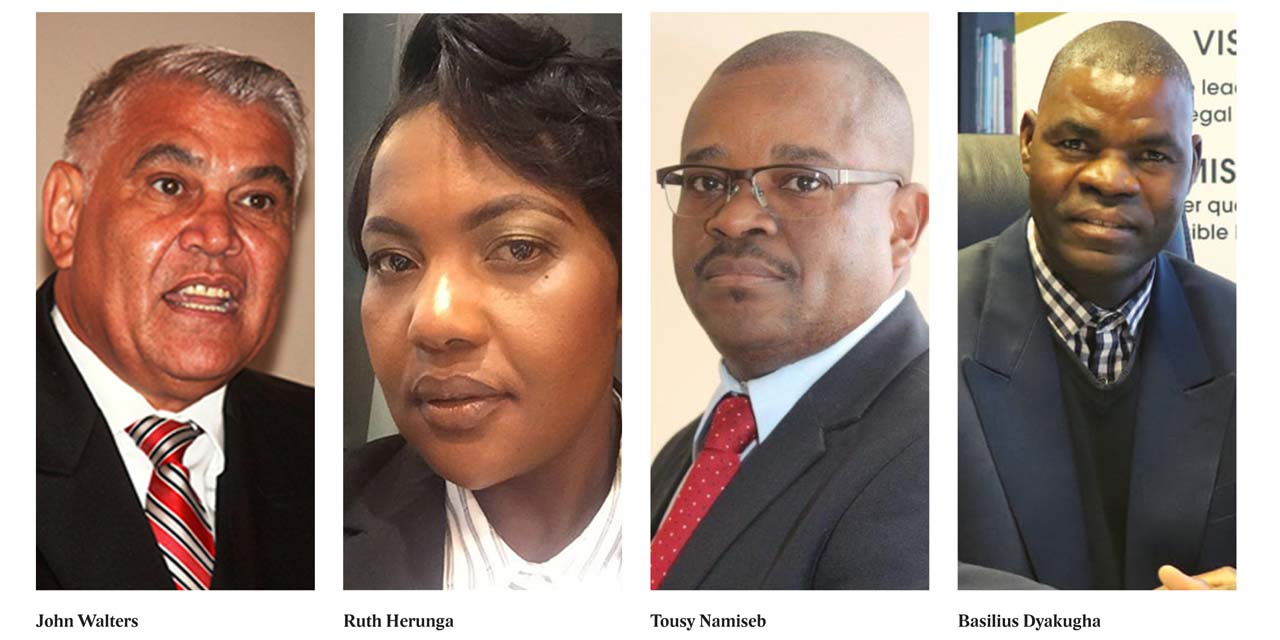Tujoromajo Kasuto
The first ever public interviews in the history of the Office of the Judiciary were held today at the Supreme Court in Windhoek. The interviews were conducted by the Judicial Service Commission (JSC). The shortlisted candidates vying for the position of Ombudsman are Secretary to the National Council, Tousy Namiseb; lawyer Ruth Herunga and Chief Legal Officer at the Law Reform and Development Commission, Basilius Dyakugha. Three candidates were shortlisted on 4 June from the four candidates who responded to the advertisement.
The interviews are an initiative of the Judiciary to boost public trust in the Ombudsman to be appointed in terms of the openness, transparency and accountability of the recruitment process. The successful candidate will replace Advocate John Walters who was last month appointed by President Hage Geingob to act for two months from 1 August until September 30 after his term ended on 31 July. Walters served as Ombudsman for 17 years, since July 2004.
Herunga, who is also a former magistrate, was the first candidate to be interviewed. She raised the issue of accessibility of the office to the general public, and shared her goals of wanting to digitilise the administration and communication methods to ensure more exposure, and reach the public, saying that taking the position would be an extension of the work she has currently been doing.
“I would like to see an office where we adopt to the changes of the current world, that we have an office more accessible to the people, find ways to be more accessible and more visible to the citizens. I will work with those who are creating mobile apps so that you can lay your complaint without having to visit the office physically,” she says.
Herunga also foresees complete autonomy from the government, believing that there is too much linkage between the Office of the Ombudsman and the Ministry of Justice. She maintains that the office requires individual financial and legal resources, and she would litigate herself to save costs.
Namiseb said his broad knowledge, which is built across various fields, specifically the NGO sector, academia, public and private institutions, has prepared him at every stage with enough exposure, where at age 52, his wish to take tasks to serve the Namibian people until his energy is “drained”.
He added that his vision is, “to work with stake holders and instill public confidence in the ombudsman, where if the office is supported by staff who are not executive but more independent offices like that of the judiciary or parliament will build public confidence.”
Namiseb says once he started doing civil litigation; impact litigation, working with legal advice centres, it planted a seed in him for human rights work.
The third candidate, Dyakugha wishes for the independence of the office from the Justice Ministry as he believes this “gives an aspect of impartiality and questions of credibility to the investigations conducted by the Ombudsman.”
Dyakugha speaks about the communication method utilised to reach the public, observing that the office does not have a hotline, thus this might cause an issue of availability to the general public that does not have resources to reach out.
Dyakugha added that the embezzlement of public funds and misuse of public property should be reported to the Office of Ombudsman, and if there is evidence of criminality this can be referred to the Prosecutor-General.
According to the Namibian Constitution, the Ombudsman should be an individual with a legal qualification which would enable them to litigate in all Namibian courts. The Ombudsman is usually an independent, non-partisan official who exercises oversight over public administration as they often have the power to investigate, report upon, and make recommendations on individual cases, administrative procedures, and relevant systemic changes.
Thus, the mandate of the Ombudsman in Namibia is related to broad categories of human rights, administrative practices, and the environment.




